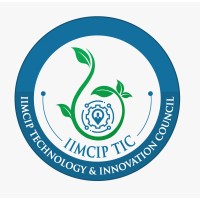Talk to Us
(+91) 9831021706
(+91) 9830161441
Email Enquiry
academy@aot.edu.in
placement@aot.edu.in
(+91) 9831021706
(+91) 9830161441
academy@aot.edu.in
placement@aot.edu.in
Blockchain is a decentralized, distributed ledger technology that enables secure, transparent, and tamper-resistant recording of transactions. Originally designed as the underlying framework for cryptocurrencies, blockchain has evolved into a versatile technology with applications spanning finance, supply chain, healthcare, governance, and beyond.

At the Academy of Technology (AOT), research in blockchain focuses on advancing scalability, interoperability, and energy efficiency while maintaining the fundamental principles of security and decentralization. Faculty and students explore consensus mechanisms such as Proof of Stake (PoS), Practical Byzantine Fault Tolerance (PBFT), and emerging hybrid models to improve transaction throughput and reduce resource consumption. Smart contract development is another key area, enabling automated, trustless execution of agreements across diverse application domains. Applications of blockchain research at AOT extend across multiple sectors. In finance, blockchain ensures secure and transparent digital transactions while reducing reliance on intermediaries. In supply chain management, it enables end-to-end traceability of goods, enhancing accountability and reducing fraud. In healthcare, blockchain protects patient data and facilitates secure sharing between stakeholders. Emerging areas include decentralized identity management, voting systems, intellectual property protection, and integration with the Internet of Things (IoT) for autonomous, trust-based operations. Security and privacy in blockchain systems are critical research priorities. AOT’s work addresses vulnerabilities such as 51% attacks, double-spending, and smart contract exploits by developing robust encryption techniques, secure key management systems, and privacy-preserving transaction methods like zero-knowledge proofs. Research is supported by state-of-the-art computing facilities and collaboration with fintech companies, cybersecurity experts, and academic partners. Students gain hands-on experience through blockchain development platforms, hackathons, and interdisciplinary projects that combine blockchain with AI, IoT, and cloud computing.
Looking forward, AOT aims to explore blockchain integration with emerging technologies such as quantum computing and Web3 infrastructure, driving innovation toward more secure, decentralized, and transparent digital ecosystems
Problem Description: In smart cities, post-disaster relief distribution demands robust cybersecurity, automation, and uninterrupted connectivity. However, traditional systems often face challenges like data tampering, misallocation of resources, and network disruptions. This research proposes a blockchain-enabled framework operating over wireless networks to ensure secure, transparent, and tamper-proof distribution of relief. Additionally, machine learning is integrated to automate beneficiary identification, demand prediction, and priority-based resource allocation—enhancing responsiveness and minimizing human error during crisis situations.
Title: AI Shield: AI Driven Disaster Management and Emergency Health Services Mobile Application
Students: Kuntal Pal, Manish Sharma, Preetam Pal, Ritam Samanta, Santosh Maity
Supervisor: Dr. Nabanita Das (CSE Department)
Year: 2025
Problem Description: Accurate disease prediction using machine learning holds immense potential in healthcare, but it often comes at the cost of patient privacy and interpretability. Centralized systems risk data breaches, and black-box AI models lack transparency, making clinical adoption difficult. This research presents a privacy-preserving disease prediction framework that integrates machine learning with blockchain to ensure secure, decentralized, and tamper-proof data handling. Furthermore, Explainable AI (XAI) techniques are employed to provide transparent, interpretable predictions, enabling medical professionals to trust and understand AI-driven decisions while maintaining strict privacy standards.
Title: Smart and Secure Diagnosis of Cancer Using Machine Learning with Blockchain-Assisted Patient Privacy
Students: Ramkrishna Giri, Amirul Ali Mallick, Chandana Jana, Tripurari Sen, Soumyojit Dutta
Supervisor: Dr. Nabanita Das (CSE Department)
Year: 2025
Problem Description: In emergencies, rapid and secure identity verification and credential access are vital, especially for medical, professional, or governmental needs. Centralized systems often fall short, lacking reliability, speed, and tamper-proof mechanisms. A decentralized, secure solution is essential to ensure seamless access and trust in high-stakes, time-sensitive situations which is where this research work aims to plug the gap.
Problem Description: Accurate identification of plant leaf diseases using deep learning plays a crucial role in precision agriculture, enabling timely interventions and improved crop yield. However, these AI models and their predictions are vulnerable to manipulation, adversarial attacks, or unauthorized access, potentially leading to misinformation, compromised decisions, and disruptions in agricultural supply chains.








G.T.Road (Adisaptagram), Aedconagar
Hooghly-712121 West Bengal, India
(+91) 9831021706
(+91) 9830161441
academy@aot.edu.in
placement@aot.edu.in
Total Visitors: 49,69,327
Academy of Technology. All Rights Reserved